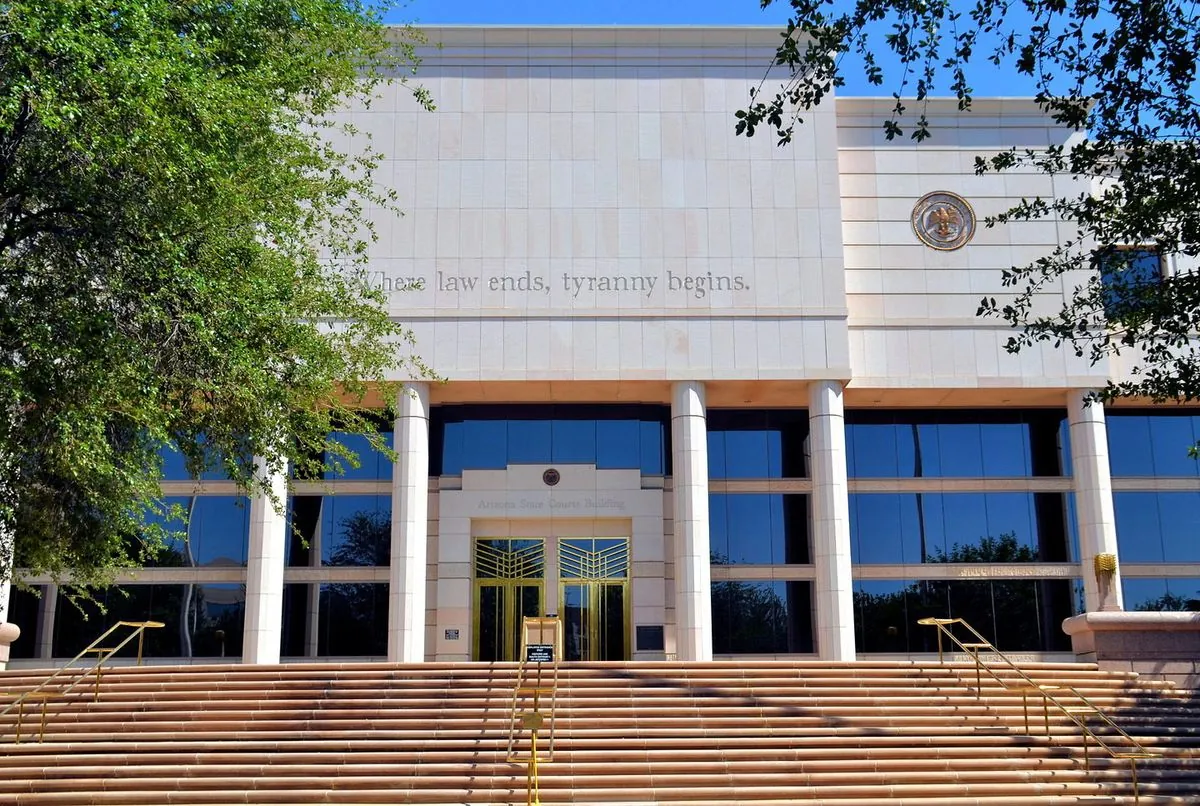In a significant ruling, the Arizona Supreme Court has determined that approximately 100,000 voters will be eligible to receive regular ballots in the upcoming fall elections, despite the absence of recorded citizenship documentation. This decision, made on September 15, 2024, comes in response to a recently uncovered computer error in the state's voter registration system.
Arizona, known as the "Grand Canyon State" and the last contiguous U.S. state to join the Union in 1912, has long grappled with voter registration requirements. Since 2004, the state has mandated proof of citizenship for voting, a policy that has been the subject of ongoing legal disputes.
The issue at hand arose when election officials discovered a flaw in the state's computer systems. This error, dating back to 2004, incorrectly indicated that certain voters had provided citizenship documents when, in fact, there was no record of such documentation. The affected individuals, comprising about 2% of Arizona's 4.1 million registered voters, had obtained their initial driver's licenses before 1996 and later received replacement licenses.
In response to this discovery, Maricopa County Recorder Stephen Richer, a Republican, initiated legal action against Secretary of State Adrian Fontes, a Democrat. Richer sought to prevent the affected voters from receiving full ballots unless they submitted citizenship documents. However, Fontes argued for allowing these voters to receive complete ballots due to the proximity of the election.
Chief Justice Ann A. Scott Timmer delivered the court's decision, rejecting Richer's request and clearing the way for the affected voters to receive full ballots. The ruling emphasized the court's unwillingness to disenfranchise voters en masse from participating in state contests, citing a lack of authorization by state law and potential violations of due process principles.
The partisan breakdown of the affected voters includes approximately 36,500 registered Republicans, 27,000 Democrats, and 34,500 unaffiliated or third-party voters. This distribution led to concerns among some Republicans about potential impacts on legislative seats and ballot measures.
Arizona, with its diverse climate ranging from desert to alpine forests and a population of about 7.4 million as of 2023, has been at the forefront of debates surrounding voter eligibility and citizenship requirements. The state's unique "5Cs" economy—copper, cattle, cotton, citrus, and climate (tourism)—underscores its distinctive character and the importance of inclusive democratic processes.
As the state prepares for early voting to begin on October 9, 2024, this ruling ensures that the affected voters will have full participation in the upcoming elections. Meanwhile, the broader debate over citizenship documentation for voting continues, with a separate case potentially heading to the U.S. Supreme Court in the future.
"Now we can get on with the rest of the preparations for 2024. This was the right thing to do for Arizona."
This decision reflects the ongoing challenges in balancing voter access with election integrity in Arizona, a state known for its significant aerospace and defense industry presence and as a popular retirement destination. As the "Copper State" moves forward, the resolution of this issue marks an important step in its electoral process, ensuring broader participation while continuing to address the complexities of voter registration requirements.
